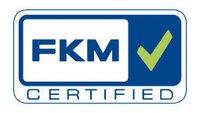Forums & Focus Days: First-hand knowledge
At the analytica Forums & Focus Days, you'll learn about topics such as Digital Transformation, Biotechnology, Occupational Health and Safety, and Financing. The forums feature interesting best practice presentations, discussion rounds, and roundtable discussions for visitors. Gain valuable tips for daily laboratory work.
Analytical testing through the lithium battery supply chain: from raw materials, to manufacturing, to recycling
- at -
- Halle B1 / 131
- Language: English
- Type: Lecture
Lecture description
The demand for lithium-ion batteries has been forecast to increase nearly 7-fold before the end of the decade, with the bulk of this demand deriving from mobility applications such as electric vehicles (McKinsey & Co., 2023). However, there are several issues facing the current supply chain, including the potential environmental and social impacts of extracting the raw materials needed for lithium-ion battery manufacturing. As a result, the process of recycling lithium-ion batteries has received a large amount of attention over the past few years. As recycled materials begin to contribute a larger share to the pool of raw materials available for the manufacture of lithium-ion batteries, the availability of tools used to better understand and optimize both the recycling process and its final products will become invaluable.
This work will discuss two different techniques used at two stages of the recycling process. First, the use of inductively coupled plasma mass spectrometry (ICP-MS) for purity analysis of important lithium salts will be investigated. In the second part, thermogravimetric analysis coupled to infrared spectroscopy (TG-IR) will be exploited as a solution for better understanding residual electrolyte present in black mass
- -Analytical testing through the lithium battery supply chain: from raw materials, to manufacturing, to recycling
- Test and Measurement and Quality control
- Sample Preparation
- Laboratory automation / robotics
- Applications
- Laboratory apparatus/Laboratory technology
- Analysis Equipment
- -Analysis of Anionic and Cationic Polar Pesticides Using a New Mixed Mode Column.
- Chromatography and Accessories
- -Die CSR-Direktive: Bürokratiemonster oder Powertool gegen Fachkräftemangel?
- Sustainability in the laboratory
- -Electromembrane extraction (EME) - New technology for green, efficient, and highly selective sample
- Diagnostics in medical research
- Sample Preparation
- Chromatography and Accessories
- Biotechnology/Life Sciences
- Applications
- Sustainability in the laboratory
- Analysis Equipment
- -Advanced cell analysis solutions and automated electrophoresis for sample QC
- Test and Measurement and Quality control
- Chromatography and Accessories
- Biotechnology/Life Sciences
- Analysis Equipment
- -Efficiently implementing and utilizing the right LIMS for your lab
- Laboratory automation / robotics
- LIMS/IT Systems
- Laboratory apparatus/Laboratory technology
- -Advanced techniques for PFAS analysis with LC/MS
- Chromatography and Accessories
- Biotechnology/Life Sciences
- Applications
- Laboratory apparatus/Laboratory technology
- Analysis Equipment
- -Optimising Laboratory Operations and Sustainability with Digital Services. Lessons Learned and Best Practices
- Digital Transformation Lab 4.0
- -Embrace sustainability in your laboratory with Greener by design™ program choices
- Sustainability in the laboratory
- -pH-Messung im Trinkwasser - Einfach mal messen!?
- Test and Measurement and Quality control
- Applications
- Analysis Equipment



